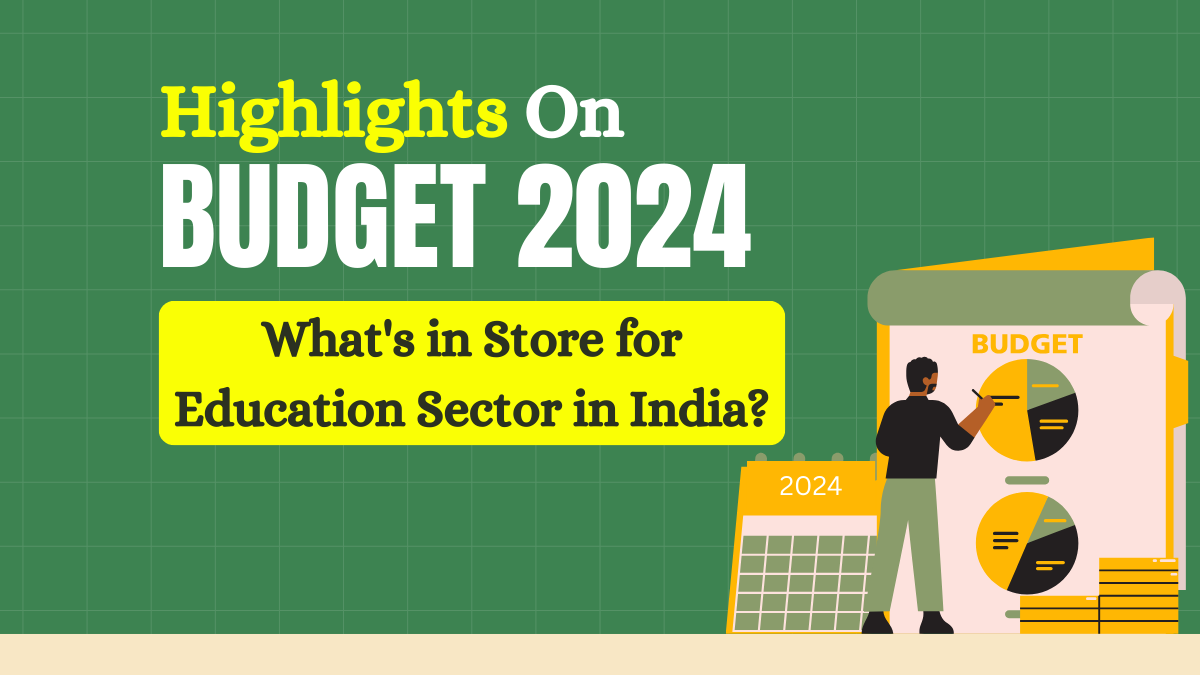Table of Contents
On 24 July 2024, Finance Minister Nirmala Sitharaman unveiled the Union Budget for 2024, marking a significant leap in the education sector in India. This budget promises transformative changes and increased investment aimed at improving educational infrastructure, skill development, and employment opportunities.
India’s Budget 2024
The Budget 2024 focuses on strengthening India’s education and skill development frameworks. With an increased allocation of ₹1.48 lakh crore for education, employment, and skilling—a 30% rise from previous allocations—the government aims to enhance the quality and accessibility of education and job training. This ambitious plan reflects the government’s commitment to addressing critical issues within these sectors.
Highlights on Education Budget 2024
- Increased Budget Allocation: The education sector received a significant boost with a 30% increase in funding, totaling ₹1.48 lakh crore. This allocation is designed to enhance various aspects of education and skill development, signaling a robust commitment to strengthening India’s human capital.
- E-Vouchers for Education Loans: To improve the Gross Enrollment Ratio (GER) in higher education, which currently stands at 28%, the government will introduce e-vouchers for education loans. This initiative aims to make higher education more accessible by providing financial assistance of up to ₹10 lakh through interest subsidies of 3% annually. One lakh students will benefit from this program each year.
- Revised Model Skill Loan Scheme: With only 4.4% of youths aged 15-29 receiving formal training, the budget introduces a revised model skill loan scheme. This scheme will offer loans up to ₹7.5 lakh to facilitate skill acquisition, aligning educational outcomes with industry requirements.
- Working Women Hostels: To address the low female labour force participation rate (37% compared to 78% for males), the budget proposes the establishment of working women hostels. This initiative aims to create a supportive environment for women to participate more actively in the workforce.
- Employment-Linked Incentive Scheme: A new employment-linked incentive scheme, modelled after the production-linked incentive scheme, is introduced to stimulate job creation. This scheme is expected to drive employment growth by offering incentives to companies that create new jobs.
- Upgrade of Industrial Training Institutes (ITIs): The budget plans to upgrade 1,000 ITIs using a hub-and-spoke model. This upgrade will align ITI course content with industry needs, enhancing the relevance and quality of vocational training provided.
- Internship Scheme for Youth: An ambitious internship scheme will be launched to provide opportunities for 1 crore youths in over 500 firms. The scheme will offer a monthly stipend of ₹5,000 and a one-time assistance payment of ₹6,000, aiming to enhance practical skills and job readiness.
- Establishment of Anusandhan National Research Fund: A new fund, Anusandhan National Research Fund, will be established with a financing pool of ₹1 lakh crore to support basic research and prototype development. This initiative is designed to spur private sector-driven research and innovation at a commercial scale.
Conclusion
Budget 2024 marks a progressive step for India’s education sector. With substantial increases in funding and a focus on improving access to higher education and skill development, the initiatives introduced are set to create a more skilled and employable workforce. These measures reflect the government’s commitment to fostering educational excellence and addressing employment challenges, laying the groundwork for a brighter future for India’s youth.




 UPHESC Assistant Professor Question Pape...
UPHESC Assistant Professor Question Pape...
 Is the CSIR NET Exam Tough? Know the Dif...
Is the CSIR NET Exam Tough? Know the Dif...
 Tips & Strategies to Prepare for CSI...
Tips & Strategies to Prepare for CSI...














